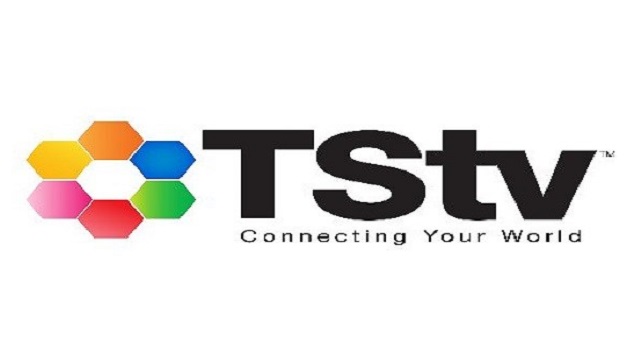Broadcasting
Product differentiation in FinTech: The key to growth in Africa, By Cynthia Alabi

Africa’s FinTech industry is growing rapidly, with new companies launching almost daily. In this competitive landscape, standing out is no longer optional; it is survival. Differentiation means more than just coming up with innovative ideas; it’s about truly understanding your customers and offering solutions that genuinely improve their lives.

Customers don’t just want another digital wallet or payment app. They want financial solutions tailored to their lives, addressing genuine challenges and providing tangible value.
Across Africa, 57% of people are still unbanked, small businesses struggle to access credit, and cross-border transactions remain a headache. FinTech companies that effectively solve these fundamental issues by prioritising accessibility, security, and excellent user experiences will naturally stand out.
Beyond Innovation: Creating Real Value
Innovation alone won’t guarantee success. Today, Africa’s leading FinTech brands focus on simplifying financial processes, clearly addressing customers’ pain points, and building genuine relationships with their users.
Key Factors Driving FinTech Success
Personalised Solutions: Companies using data analytics and AI to deliver personalised financial experiences stand out. Tailored recommendations, user-friendly interfaces, and targeted communication significantly increase customer satisfaction and loyalty.
Seamless Access: Easy access through mobile apps, USSD codes, or agent networks helps FinTech companies reach more people, particularly in underserved communities.
Trust and Security: Building trust is crucial, especially with limited financial literacy. FinTech providers who invest in robust security, transparent policies, and reliable customer service earn long-term trust and loyalty.
Customer Experience: The Decisive Factor
Regardless of how advanced a FinTech product may be, users won’t stick around if they find it complicated or frustrating. Africa’s most successful FinTech companies focus on delivering seamless, enjoyable customer experiences. Easy onboarding, responsive support, and intuitive interactions build customer loyalty, turning users into brand ambassadors.
Key CX Differentiators:
Proactive Support: Immediate, multilingual customer support and effective chatbot technology help users feel valued and understood.
Frictionless Onboarding: Simple and quick registration directly encourages higher adoption rates.
Financial Education: Companies that provide financial education build trust and loyalty, especially among new FinTech users who appreciate guidance.
Big Opportunities in FinTech
Despite impressive growth, Africa’s FinTech sector still has notable gaps. Companies strategically addressing these areas have significant opportunities for further success:
Financial Inclusion: Offering accessible and affordable financial services to underserved communities is essential in bridging existing gaps.
SME Financing: Small businesses account for around 80% of African employment. FinTech solutions that offer quick and flexible financing options significantly boost economic growth.
Cross-Border Transactions: With Africa’s cross-border payments market projected to reach $25 billion by 2025, FinTech companies offering efficient and affordable solutions will lead the market.
Final Thoughts: Differentiation is the Future
Africa’s FinTech story is not simply about disrupting traditional banking. It’s about genuinely improving lives through thoughtful financial solutions. FinTech companies that successfully differentiate themselves by prioritising accessibility, trust, and outstanding customer experiences will shape the future of finance on the continent.
Broadcasting
A Billion-Dollar Obsession in 90-Second Bites

About ₦2 billion changes hands in bets every day (KPMG Gaming Outlook 2025), driven by a 60-million-strong punter base that treats wagering as both entertainment and side-hustle. Industry revenue is on pace to hit US $3.63 billion in gross gaming revenue (GGR) by December 2025 – roughly the size of Nigeria’s entire recorded-music market.
Smartphones rule this universe: more than 90 percent of slips now start and finish on a handset, which is why the market leaders obsess over data-lite apps and USSD deposits almost as much as odds feeds.
Our Litmus Test for “Best”
To separate hype from heft we graded each book on the nine variables that still matter after the banner ads fade:
- Odds edge & market depth – average margin on EPL, NPFL and niche sports
- Live tech stack – cash-out latency, in-play uptime, streaming rights
- Payout speed & reliability
- Responsible-gaming tools (RG) – time-outs, self-exclusion, deposit caps
- Licensing strength & dispute history
- Promotions that actually pay
- Product breadth – virtuals, jackpots, prediction games, casino
- Financial resilience – operating cash flow, retail footprint, VC war chest
- Cultural traction – agent networks, grassroots sponsorships, meme power
The Heavyweights – and Why Each Owns a Piece of The Best
| Operator | What They Nail | Ticking Time-Bombs | Verdict |
| SportyBet | Biggest traffic (≈ 57 M visits / month), sub-5-second cash-outs, crazy-low EPL margin (~4.5%). | Still no retail city hubs; crash loops on older Tecno devices. | Mobile kingpin |
| Bet9ja | Heritage trust, retail agents in 20 states, jackpots like Super9ja; circa ₦10 billion monthly handle. | Dated UX; odds less sharp since 2024 revamp. | Legacy war-horse |
| BetKing | Data-driven odds, Genius Sports in-play feed, renewed deal with Gamble Alert for RG training. | Slower KYC queues at peak traffic. | RG poster-child |
| Surebet247 | NLRC Permit 0001081; cash-first agent model with mobile slip tracking; boosted welcome bonus to ₦150k; full cash-out on domestic basketball. | Android app, iOS app; livestream rights still pending. | Mobile dark horse |
| 1xBet & Betway | Global market buffet, esports, crypto options. | Offshore-licence optics; occasional geoblock glitches. | International muscle |
| NairaBet, AccessBET, Msport, Premier Bet, BetPawa | NairaBet = pioneer cachet; Msport & BetPawa blitz TikTok; Premier Bet just signed Francis Ngannou. | Each misses at least one core pillar (RG tooling, market depth or fast payouts). | Specialist niches |
Two Deep-Cut Insights the Billboards Won’t Show You
- Women are quietly reshaping the market. According to University of Abuja (“according to data from the University of Abuja”), 30 percent of urban Lagos women now gamble regularly, and a 2025 field survey found daily spend often tops ₦50,000 despite lower median income.
- Mobile-money betting dents student wallets. According to Lagos State University, mobile-money deposits explain 26.7 percent of the variance in student financial well-being – a stat that should make every platform’s RG desk sweat.
So, Who Actually Wins?
- Premier-League diehards who live for lightning-fast in-play cash-out: SportyBet wears the crown.
- Corner-shop loyalists who still like to chat with a clerk: Surebet247 Betshop nails the cash-plus-mobile sweet spot.
- Jackpot chasers who want EPL on Saturday, Ugandan Super League on Tuesday, and darts on Thursday: Bet9ja is still the Swiss-Army knife.
Punters who value self-exclusion toggles and deposit caps (you should): BetKing edges ahead.
In reality, “best” is contextual. Odds hawks, live-stream junkies, crypto degenerates and agent-network stalwarts will all point to different logos. What you don’t want is a bookie that melts down at 89′ when Villarreal finally scores.
On that front, the four names above – plus a rapidly innovating Surebet247 mobile bet shop – look built to survive Nigeria’s next data-price hike and the NLRC’s tightening audit screws.
The rest? Keep one eye on their uptime dashboards – and the other on your bankroll.
Broadcasting
Nigeria Week Ahead: Inflation, Oil and Naira in focus

By Lukman Otunuga, Senior Market Analyst at FXTM.
A flurry of high-risk events may pump global financial markets with fresh volatility this week.

Top-tier data, including US Inflation, the unofficial start of earnings season, and US Congress “Crypto Week,” among other themes, could spell fresh opportunities.
Amidst this, uncertainty over global trade will add to the mix after President Donald Trump threatened 35% tariffs on the EU and Mexico over the weekend.
Regarding US inflation, this may impact bets around Fed cuts in the second half of this year. Markets are forecasting CPI to rise 2.6% from 2.4% in the prior month, with core CPI rising to 2.9% from 2.8%. Signs of rising prices may shave bets around the Fed cutting interest rates – boosting the dollar as a result.
Closer to home, Nigeria’s June CPI data due July 15 is expected to show signs of cooling inflationary pressures. This could offer some relief to the Central Bank of Nigeria (CBN) which aggressively hiked interest rates throughout 2024. Inflation is expected to have eased to 21.4% year-on-year from 23% in May – marking the 4th consecutive month of decline. However, the slowdown is largely a technical adjustment aided by the recent gains in the Naira amid higher non-oil exports and a weaker dollar.
The CBN is scheduled to meet later this month and will most likely keep rates unchanged at 27.5%.
One key challenge for the country will be how to re-tweak its budget for lower oil prices. Indeed, the budget was based around oil production at 2 million barrels and oil prices of $75. Brent is trading around $70 with the nation producing 1.544m b/d of crude in May according to OPEC. Nigeria is hoping to raise production to 1.9m b/d by the end of 2025. But its impact on the economy may be muted if oversupply and tepid demand keep oil prices subdued. Brent is up 4% this month but still down over 6% since the start of 2025.
Broadcasting
EFCC Re-Arraigns Echefu, TStv CEO for Allegedly Defrauding Ex-Minister of N1Bn, $1.3m

Bright Echefu, chief executive officer, Telecom Satellites Limited (TStv), and three co‑defendants appeared before the Federal High Court in Abuja yesterday on an amended twelve‑count indictment brought by the Economic and Financial Crimes Commission (EFCC). The charges allege money laundering, tax evasion, and investment fraud involving approximately ₦1 billion and $1.3 million.

Bright Echefu, chief executive officer, TStv
In addition to Echefu, the defendants are TStv Executive Director, Felix Igboanuga, Telecom Satellites Limited itself, and Briechberg Investment Ltd.
According to the April 5, 2025, amended charge sheet the EFCC accuses the quartet of defrauding Mr. Tanimu Turaki, Managing Director of Kalsiyam Global and former Minister of Special Duties, alongside BYI General Limited, out of a combined investment of ₦1 billion and $1.3 million. The commission has also included a ₦66 million alleged tax default.
The revised indictment lists:
Count 2: ₦33,909,542.47 in unremitted Company Income Tax
Count 3: ₦13,519,382.00 in unremitted VAT
Count 4: ₦19,488,860.00 in unremitted PAYE
Counts 5–12: Various fraud‑related transactions, including ₦380 million from Kalsiyam Farm, ₦400 million from BYI General Ltd and $1.35 million in loans secured under false pretences.
All defendants pleaded not guilty once again. At the hearing before Justice Mohammed Umar, Echefu’s lead counsel, Senior Advocate Eyitayo Fatogun, informed the court of ongoing settlement discussions with the complainants.
“There are moves to settle this matter and there was a meeting on Saturday between myself and the Nominal Complainant as it is about investment,” Fatogun stated.
“The Defendants have paid some money and I was thinking that the matter be adjourned for report of settlement.”
EFCC counsel A.S. Tomwell confirmed receipt of those payments but emphasized the necessity of entering a plea before considering any adjournment. The court thus ordered the formal reading of the charges and adjourned the trial to October 15, 2025.

 Broadcasting2 days ago
Broadcasting2 days agoNigeria Week Ahead: Inflation, Oil and Naira in focus

 News2 days ago
News2 days agoEFCC: Accusations Against Our Chairman Are Baseless and Misleading

 Telecom24 hours ago
Telecom24 hours agoMTN Nigeria Targets $1Bn Cloud Market with Largest Modular Data Centre

 Telecom24 hours ago
Telecom24 hours agoNCC Introduces N10m Licence Fee for Bulk SMS Service

 E-Business1 day ago
E-Business1 day agoFirm Highlights Top Risks of Quantum Computing

 General News1 day ago
General News1 day agoAM Best Reaffirms Stable Outlook for Cyber Insurance Market

 Telecom24 hours ago
Telecom24 hours agoPAT Taps Osi as CEO

 General News24 hours ago
General News24 hours agoBurna Boy Distances Himself from Meme Coin, Labels Crypto as Fraud



























